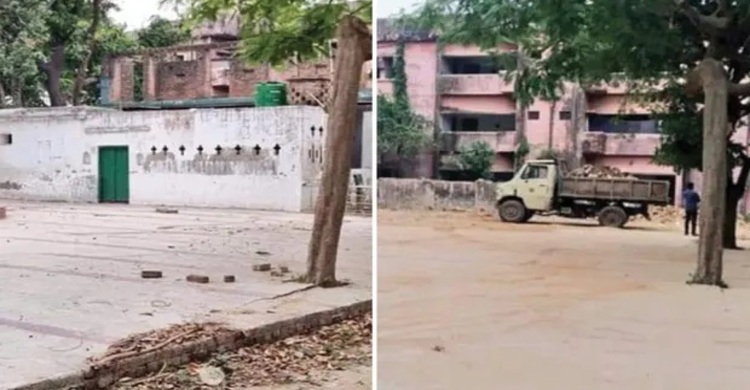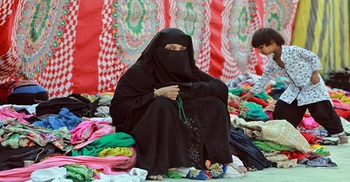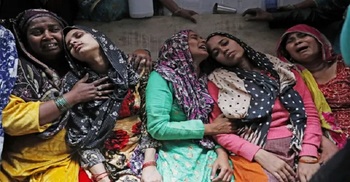India mosque demolition: Report filed on Muslim leaders false

An Indian court has ruled that a local government administration in Uttar Pradesh filed a “false and unfounded” police report against eight Muslim leaders who had opposed the “illegal” demolition of their mosque.
The bulldozing of the Masjid Gareeb Nawaz Al Maroof last month, carried out on the orders of the local administration of Barabanki district, caused an outcry and sent many local Muslims into hiding.
In the days following the demolition, the Barabanki administration filed a police case against eight local Muslim leaders who had opposed the demolition, accusing them of forging documents that had led to the mosque being illegally registered on government land.
In a ruling at Allahabad high court published on Tuesday, judges declared that the administration had filed a “false and unfounded” police report against the Muslim leaders. The ruling, which was the result of a lawsuit challenging the demolition of the mosque, found that the state government had provided no proof to the court of falsified or forged documents.
The Muslims named in the case were also granted protection from arrest and the Uttar Pradesh government was given three weeks to produce the evidence.
The local administration that ordered the mosque to be flattened on 17 May had called it an “illegal structure” intruding on government land. The demolition has drawn comparisons with the demolition of Babri Masjid, a mosque torn down by a rightwing Hindu mob in 1992.
The Uttar Pradesh government is ruled by the Hindu nationalist Bharatiya Janata Party (BJP) which also controls the central government. The state chief minister, Yogi Adityanath, is one of the most hardline leaders in the party, known for his vitriol towards Muslims.
After the mosque’s demolition, the Masjid Gareeb Nawaz Al Maroof committee and officials from the Uttar Pradesh waqf board, which oversees the running of all mosques in the state, had challenged the demolition of the mosque as “patently illegal” and demanded it be rebuilt.
The Barabanki administration has since denied there was a mosque on the grounds at all and described the building as an “illegal construction”. Documents seen by the Guardian, however, show the building was first registered with a state body as a mosque in 1968. Chaudhary Haseen, 65, also confirmed that the local administration had appointed his deceased father, Anwar Hussain, as caretaker of the mosque, which he said had stood “since the British period”, between 1956 and 1986.
The demolition followed weeks of harassment by the Barabanki administration against the mosque committee and Muslims who worshipped there. A notice had been sent to the committee alleging that the structure was an “illegal construction” and tensions arose after Muslims who were prevented from praying at the mosque clashed with police, leading to dozens of arrests.
The decision to demolish the mosque is also alleged to be also a violation of a high court order passed on 24 April where all demolitions and evictions in Uttar Pradesh were ordered to be halted until 31 May.
Adarsh Singh, the Barabanki district magistrate, has said the administration acted in “complete compliance” with the law.
Source: The Guardian



